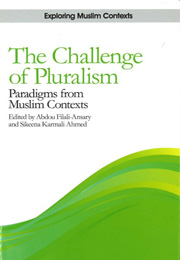Introduction: Theoretical Approaches to Cultural Diversity
Published online by Cambridge University Press: 12 September 2012
Summary
Pluralism, as a concept, has only recently emerged as an important category to consider for those who are interested in religion and politics and their relations in contemporary contexts. According to the Online Etymology Dictionary, it was attested as a term in philosophy in 1882 and, in political science, only from 1919. In 1933 it is recognised as referring to a “theory which opposes monolithic state power” and in the general sense of “toleration of diversity within a society or state”. One can add to this that major philosophical works dedicated to the concept of pluralism have been produced in the twentieth century, and are clearly typical of contemporary times and the issues that have emerged within them.
At the level of discussions within philosophy, theology and even social and political thought, this development is very recent. One can immediately add that it is also important. Pluralism has very quickly joined the group of major notions discussed by various thinkers interested in issues related to norms of political and social life, such as liberty, sovereignty, toleration and the like. Judging by the way it has gripped ongoing debates, it does not seem to be one of the buzzwords which come and go like fashions. This can be seen from the way it has pervaded intellectual debates. The feeling is that it signals some major developments affecting contemporary political contexts and, as a consequence, presents some serious challenges to the thinkers and political leaders of our time.
- Type
- Chapter
- Information
- The Challenge of PluralismParadigms from Muslim Contexts, pp. 1 - 6Publisher: Edinburgh University PressPrint publication year: 2009



